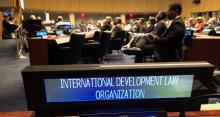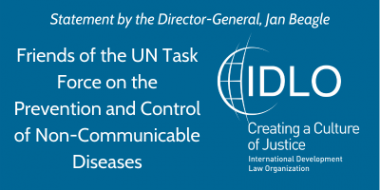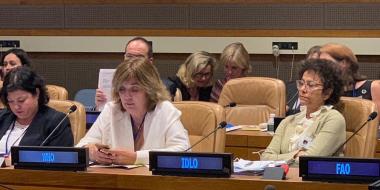Non-communicable diseases (NCDs) account for widespread illness and disability, and over 70 per cent of all deaths worldwide, killing 41 million people worldwide every year. Key risk factors include unhealthy diets and physical inactivity, increasing the risk of life-threatening conditions such as diabetes and heart disease to men, women, girls, and boys of all income levels. Overall, unhealthy diets pose a greater risk to morbidity and mortality than do unsafe sex, alcohol, drug, and tobacco use combined.
The rule of law is a crucial part of the response to NCDs. Through regulation and fiscal reforms, countries can promote healthy diets, physical activity, and other initiatives reducing the prevalence and harms of NCDs. IDLO works extensively at this intersection of health, rule of law, and sustainable development, strengthening the capacity of civil society and other academic, health, and legal institutions to address large-scale public health crises. In support of international commitments to the Sustainable Development Goals (SDG), IDLO promotes the increasing international awareness of links between SDG 3 on healthy lives and wellbeing and other SGDs, especially SDG 16 on peace, justice, and strong institutions.













